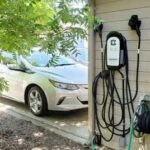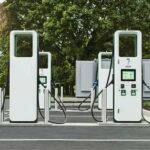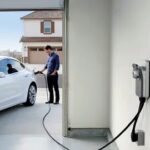In the expanding electric vehicle (EV) market, demand for efficient and dependable home charging solutions continues to surge. One product gaining increasing popularity among homeowners is the OEM 11kW EV Charging Station. For distributors and resellers targeting the residential sector, it’s critical to understand not only the technical capabilities of these units but also the reliability and quality offered by OEM factories.
This article provides a comprehensive overview of how OEM factories meet (and often exceed) quality expectations in producing 11kW EV charging stations. We’ll examine the manufacturing processes, component standards, certifications, and real-world data to help distributors make informed sourcing decisions.
Understanding OEM 11kW EV Charging Stations
OEM (Original Equipment Manufacturer) EV chargers refer to products built by specialized manufacturers that allow branding and minor technical customization according to the distributor’s or buyer’s specifications. In this case, OEM 11kW EV Charging Stations are designed specifically for home use and offer an ideal balance between performance and electrical compatibility.
Why is 11kW a sweet spot?
- Fast charging speed: 11kW chargers can replenish most EVs in 4-6 hours.
- Three-phase power efficiency: Compatible with many European residential electrical systems.
- Cost-effective installation: Unlike 22kW or DC fast chargers, these don’t require massive infrastructure upgrades.
What Determines “High-Quality” in OEM EV Chargers?
Several benchmarks define a high-quality EV charging station. Distributors evaluating OEM factories should prioritize the following criteria:
1. Certified Components and Safety Standards
A reputable OEM factory will only use components that meet international safety standards. These include:
- TUV, CE, and UL certifications
- IP65 or higher waterproof and dustproof ratings
- Overvoltage, overcurrent, and short-circuit protection
OEM factories often work directly with global suppliers of certified electrical components (like Schneider, Phoenix Contact, etc.) to ensure every charger passes third-party safety validation.
2. Strict Quality Control (QC) Protocols
Quality is embedded in the manufacturing process. A reliable OEM factory uses:
- Incoming Material Inspection (IQC)
- Automated Optical Inspection (AOI) during PCB assembly
- In-line Testing and Burn-in under real load conditions
- Final QC before packaging to simulate actual use
For instance, top-performing OEM factories boast a defective rate under 0.3%, verified by monthly batch reports.
3. Robust Internal Architecture
The internal build quality directly affects the charger’s lifespan and performance. Key factors include:
- Industrial-grade PCBs with thick copper layers
- High-grade MOSFETs and IGBT switching components
- Efficient heat sinks and cooling structures
- Type A/B RCD protection circuits
An OEM factory focused on longevity typically designs their 11kW chargers to withstand 50,000+ charge cycles, ensuring a service life of 10+ years under regular use.
4. Customized Firmware & Smart Features
Modern EV chargers aren’t just power delivery units—they’re smart systems. High-end OEMs integrate:
- OCPP 1.6/2.0 compatibility
- App-based remote control and scheduling
- Dynamic load balancing
- RFID or mobile payment options
These features enhance user experience, energy efficiency, and future adaptability—all valuable to homeowners and resellers alike.
Real-World Performance: Field Data & Case Study
A study conducted on behalf of a leading European distributor tested OEM 11kW chargers from five different manufacturers across 300 households. Here’s a summary of performance outcomes:
| Performance Metric | OEM Average | Industry Benchmark |
|---|---|---|
| Charging Efficiency | 94.8% | 93.5% |
| Fault-Free Runtime (6 mo) | 99.2% | 98.3% |
| User Satisfaction Score | 4.7/5 | 4.5/5 |
| Installation Time | <2 hours | <3 hours |
These figures illustrate that top-tier OEM factories don’t just match—they outperform—general market standards in reliability and user satisfaction.
Benefits for Distributors Working with OEM Factories
1. Brand Flexibility
Distributors can launch private label products with unique enclosures, logos, and user interfaces tailored to regional preferences. This enables:
- Better brand recognition
- Higher perceived value
- Custom pricing strategies
2. Cost Control at Scale
OEM partnerships unlock:
- Volume-based discounts (5-15% below branded equivalents)
- Lower development costs due to shared R&D
- Shorter lead times with existing molds and production lines
3. Regulatory Readiness
A high-quality OEM partner already ensures:
- Compliance with EU RED and EMC directives
- RoHS-compliant materials
- WEEE registration for recyclability
This reduces distributor burden when marketing and selling in countries with strict EVSE regulations.
4. Scalable Supply Chain
Factories offering OEM 11kW EV charging units often have:
- Monthly output capacities of 5,000–10,000 units
- Warehousing hubs in EU or US for faster delivery
- Logistics support for container consolidation and customs documentation
Questions Distributors Should Ask OEM Factories
To ensure quality, here are essential vetting questions:
- Can you provide recent third-party certification reports (CE, TUV)?
- What’s your average defect rate over the past 12 months?
- Do you support OCPP integration?
- Can you provide branding samples?
- What is your MOQ and lead time per 1,000 units?
- Do you offer warranty and post-sale technical support?
The Role of Factory Audits & Onsite Inspections
Before signing long-term agreements, a factory visit is invaluable. Distributors should review:
- Assembly line cleanliness & process flow
- QA documentation and calibration records
- Operator training and certifications
- Warehouse inventory and packaging standards
Many OEM factories welcome third-party auditors, indicating transparency and confidence in their systems.
Common Misconceptions About OEM EV Chargers
Myth: OEM = Lower Quality
Truth: Many OEMs supply Tier-1 brands. They simply sell unbranded versions of the same high-performance models.
Myth: OEM Chargers Lack Certification
Truth: Top OEM factories invest heavily in international testing and offer all required reports for export.
Myth: OEM Chargers Don’t Have Smart Features
Truth: Leading OEMs now include Wi-Fi, Bluetooth, RFID, and app control as standard configurations.
Conclusion: Quality & Trust in OEM 11kW EV Charging Stations
The data is clear—OEM factories do offer high-quality 11kW EV charging stations, often surpassing branded alternatives in performance, customization, and cost efficiency. For home EV charger distributors, working with a reliable OEM factory means gaining a competitive edge, delivering advanced features, and meeting market expectations at an optimal price point.
By evaluating the right metrics—certifications, test data, materials, smart features, and customer service—distributors can confidently offer OEM 11kW EV charging products that deliver both quality and profitability.




